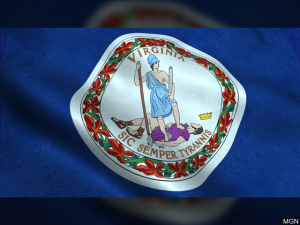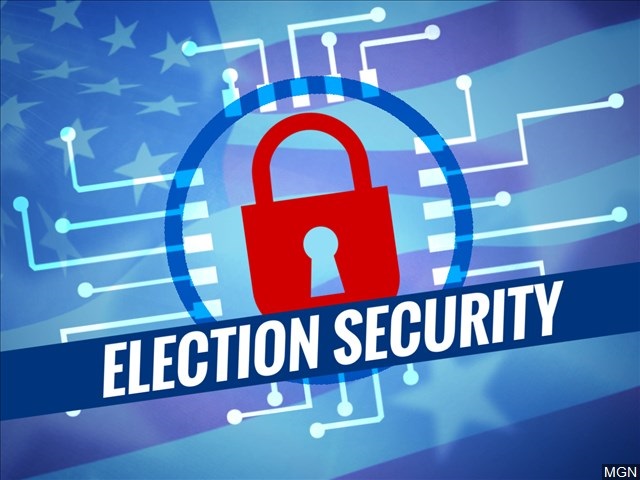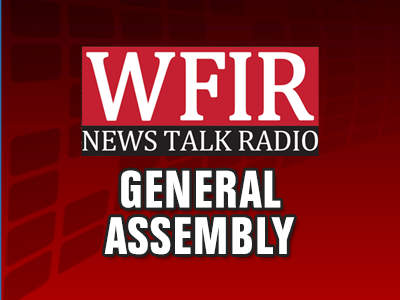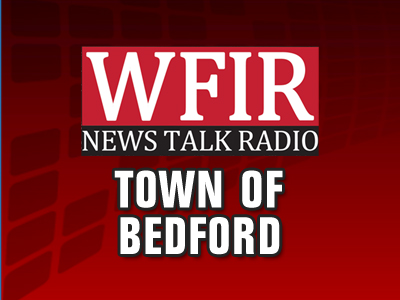 The Institute for Policy and Opinion Research (IPOR) at Roanoke College interviewed 678 adult residents of Virginia between May 14 and May 23, 2023, in a survey addressing topics such as approval and favorability ratings for Gov. Glenn Youngkin and other political figures, the 2024 Republican presidential nomination field, a potential 2024 presidential election matchup, and attitudes related to national political anxiety. The survey has a margin of error of 4.43%.
The Institute for Policy and Opinion Research (IPOR) at Roanoke College interviewed 678 adult residents of Virginia between May 14 and May 23, 2023, in a survey addressing topics such as approval and favorability ratings for Gov. Glenn Youngkin and other political figures, the 2024 Republican presidential nomination field, a potential 2024 presidential election matchup, and attitudes related to national political anxiety. The survey has a margin of error of 4.43%.
Approval/favorability of political figures and direction of Virginia and country
Gov. Youngkin’s approval rating is down six points from February, with 51% of Virginians reporting that they approve of the way he is handling his job as governor (from 57% in February). Youngkin’s favorability rating is also down six points to 46% (from 52% in February). Significant partisan gaps in Youngkin’s approval and favorability continue from previous polls, with a 52-point gap in approval (34% of Democrats, 86% of Republicans) and 54-point gap in favorability (27% of Democrats, 81% of Republicans).
As for the Virginia General Assembly, 50% of Virginians approve of the way the legislature is handling its job (from 48% in February), including a 10-point partisan gap in approval (58% Democrats, 48% Republicans). When asked about whether things in Virginia are going in the right direction or are on the wrong track, 48% of Virginians report that things are going in the right direction, which is down 7% from 55% in February. There is a modest 12-point partisan gap, with 47% of Democrats and 59% of Republicans thinking things in Virginia are going in the right direction.
At the national level, President Biden’s approval and favorability ratings are up slightly to 42% (from 38% in February) and 43% (from 40% in February), respectively, though both changes are within the survey’s statistical margin of error. As for former President Trump, about six in 10 Virginians report an unfavorable view of him, which is up five points from February and is the highest unfavorable rating in our poll since January 2016. There are again substantial partisan gaps in favorability ratings for both Biden and Trump, including a 73-point gap for Biden (80% of Democrats, 7% of Republicans) and 65-point gap for Trump (11% of Democrats, 76% of Republicans). As for the U.S. Congress, Virginians’ approval rating is down about four points to 19% (from 23% in February and 27% in November). This is IPOR’s lowest-recorded approval rating for Congress since August 2021. One in four Virginians thinks things are going in the right direction in the country, while seven in 10 think things are on the wrong track, which is statistically unchanged from the last poll (27% and 69% in February, respectively). There is a 37-point partisan gap in Virginians’ belief that things in the country are going in the right direction (45% of Democrats, 8% of Republicans).
2024 GOP presidential nomination and hypothetical general election matchups
The Roanoke College Poll asked Virginians’ opinions about the 2024 Republican presidential nomination race, such as who they would most prefer to be the Republican nominee for president, as well as their second-choice preference. The poll provided a field of candidates , including Trump, former United Nations Ambassador Nikki Haley, Florida Gov. Ron DeSantis, U.S. Senator Tim Scott from South Carolina, and former Vice President Mike Pence.
Among Republicans, the candidates they would most prefer to be the Republican nominee for president are Trump (48%) and DeSantis (28%), with all other candidates in the single digits. Virginia Republicans’ preference for Trump as the first choice is up nine points from February (39%), while the first-choice preference for DeSantis remains unchanged at 28%. We also asked respondents who their second choice would be for the Republican nomination. Among Republicans, the most popular second choices are DeSantis (24%), Pence (20%), Trump (19%), Haley (11%) and Scott (10%), with all other candidates again in single digits.
The poll also asked Virginians who they would vote for if the presidential election were held today in a potential matchup between the two leading candidates in both political parties – Biden and Trump. Biden currently has a 16-point advantage over Trump at 54% to 38%, which is a significant change from our February poll that had Biden at 47% and Trump at 45%. The change is due to a shift among independents, where Biden currently has a 21-point advantage over Trump. As a comparison, our February poll had Biden and Trump in a statistical tie among independents.
Political Anxiety and Attitudes about the National Government
Since 2016, IPOR has been tracking Virginians’ national political sentiment using an index of political anxiety, which is constructed using six questions that measure Virginians’ attitudes about (1) trust in the national government, (2) citizens’ ability to influence government, (3) whether their side has been winning more often than losing, (4) satisfaction with how government is working, (5) whether the country’s best years are ahead or behind, and (6) whether Americans are united or divided in facing our most important challenges. We last reported results of the political anxiety index in November 2022.
Approximately 79% of Virginians report trusting the government in Washington to do what is right only some of the time or never, which is statistically unchanged from November. A slight majority (52%) thinks that ordinary citizens can do a lot to influence the federal government, which is down six points from November. The poll finds that six in 10 Virginians (61%) think their side is losing more than winning in politics today. Fewer than half (41%) believe that the country’s best years are ahead of it, while a majority (55%) believes its best years have passed. This represents a nine-point change for both responses from our November poll, and it is the highest percentage of Virginians who have reported that the country’s best years are behind us since IPOR started asking this question in 2016. Nearly seven in 10 (69%) Virginians are dissatisfied or angry with how the federal government is working, which is unchanged from November. A large majority of Virginians (84%) also continues to see the nation divided regarding the important issues facing the country.
IPOR’s Political Anxiety Index has a maximum possible value of 300 and minimum possible value of -300, with higher values representing greater degrees of national political anxiety. The graph below displays trends in the Political Anxiety Index from 2017 through our current May 2023 poll, including the overall trend and the trend disaggregated by party affiliation. For additional party differences on the six questions, see the selected crosstabs at the end of the topline document linked at the end of this release.
One of the consistent findings we have reported previously is that the party differences in national political anxiety reflect party control of the White House. In other words, Virginians tend to report higher levels of political anxiety when the current president is not aligned with their political party. Currently, Republicans (red line) report a higher degree of anxiety in our index with a value of 154.5, which has remained relatively stable during the Biden administration. Democrats (blue line) report a lower degree of anxiety with a value of 2.2, which represents a 38-point increase in anxiety among Democrats from our November poll. While overall national political anxiety (grey line) has remained relatively stable for most of the time IPOR has tracked the index, there has been a gradual increase of approximately 50 points since early 2021.
Analysis
“The main takeaway from our May poll is that more Virginians are reporting concern about the direction things are going in Virginia and in the nation,” said Bryan Parsons, senior political analyst at IPOR. “We also see this reflected in our Political Anxiety Index, which is up overall and among Democrats since the last time we measured it in November. We see a drop in the number of Virginians who think citizens can do a lot to influence government, as well as an increase in those who think the country’s best years are behind us. These factors are part of Virginians’ higher levels of pessimism about the commonwealth and nation.”
“While half of Virginians approve of the job Youngkin is doing as governor, his approval and favorability ratings are down a bit since our last poll. Our recentConsumer Sentiment Report showed that Virginians are increasingly optimistic about the economy, so it may be a surprise that the public does not appear to be rewarding the governor with a higher job approval rating. However, a lot of research links public optimism about the economy to favorable evaluations of the president, which we find in a slight uptick in Biden’s approval and favorability ratings (within our margin of error). The consistent story of Virginia and national politics, however, continues to be the way partisanship shapes how the public evaluates political leaders, which is reflected in substantial gaps between Democrats’ and Republicans’ approval of both Youngkin and Biden.”
“While former President Trump’s unfavorable rating is the highest our poll has recorded since January 2016, Trump remains Republicans’ most popular first choice for the 2024 Republican presidential nomination. Florida Gov. Ron DeSantis again trails Trump as Republicans’ first choice by double digits, but the field of second-choice candidates is wide open with Republicans expressing preferences for additional candidates such as former Vice President Mike Pence, former United Nations Ambassador Nikki Haley, and South Carolina Sen. Tim Scott.”
“Our poll shows that Biden has an edge over Trump when we ask Virginians who they would vote for if the 2024 presidential election were held today. This is a significant change from our February poll and is mostly occurring among independents. There are several factors that could be driving this change, such as Biden’s slight improvement in favorability, Trump’s higher unfavorability, the shift among independents, and various events in the political news cycle since February. However, this poll, like any other, is just a current snapshot in time. We are still very early in the presidential election cycle. There is a lot of campaigning left to do for prospective presidential candidates, and it is not uncommon for early polling on matchups like these to be fluid for quite some time.”
Methodology
Interviewing for the Roanoke College Poll was conducted by The Institute for Policy and Opinion Research at Roanoke College in Salem, Virginia, between May 14 and May 23, 2023. A total of 678 completed interviews came from random telephone calls to 399 Virginians, and 279 responses were drawn from a proprietary online panel of Virginians. Telephone interviews were conducted in English. Cellphones constituted 57% of the completed phone interviews. Marketing Systems Group provided the telephone dialing frame, and Lucid, LLC facilitated the online panel.
Questions answered by the sample of 678 respondents are subject to a sampling error of plus or minus approximately 4.43% at the 95% confidence level. This means that in 95 out of 100 samples like the one used here, the results should be at most 4.43 percentage points above or below the figure obtained by interviewing all Virginians with a home telephone or a cellphone. Where the results of subgroups are reported, the sampling error is higher.
Quotas were used to ensure that different regions of the commonwealth were proportionately represented. The data were statistically weighted for gender, race and age. Weighting was done to match Virginia data in the 2021 one-year American Community Survey (ACS). The design effect was 1.383; the reported margin of error above reflects this design effect.



